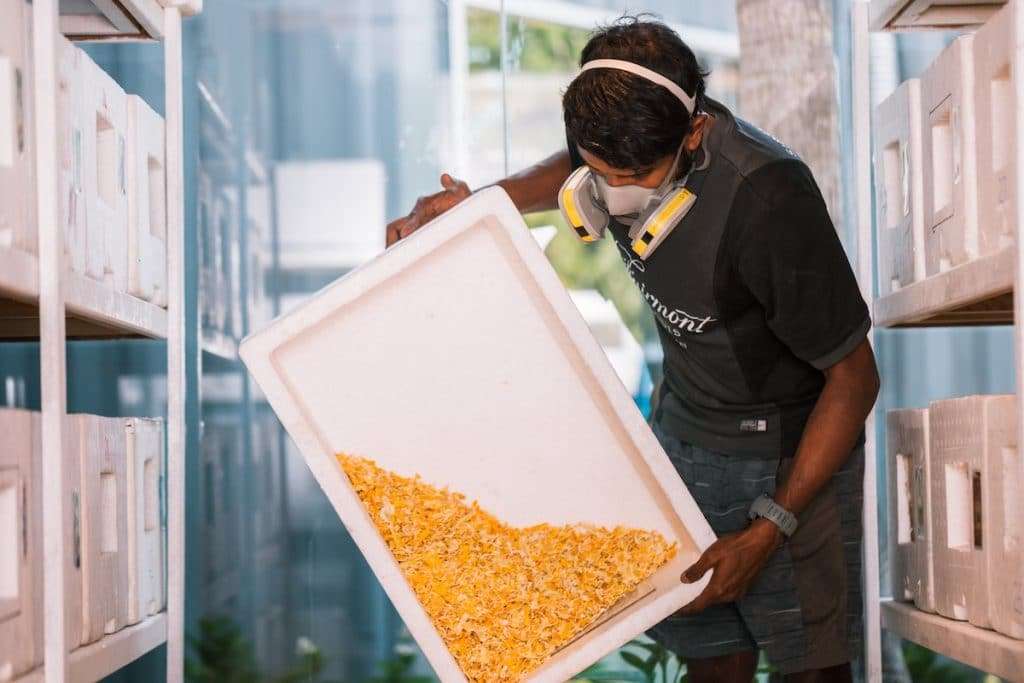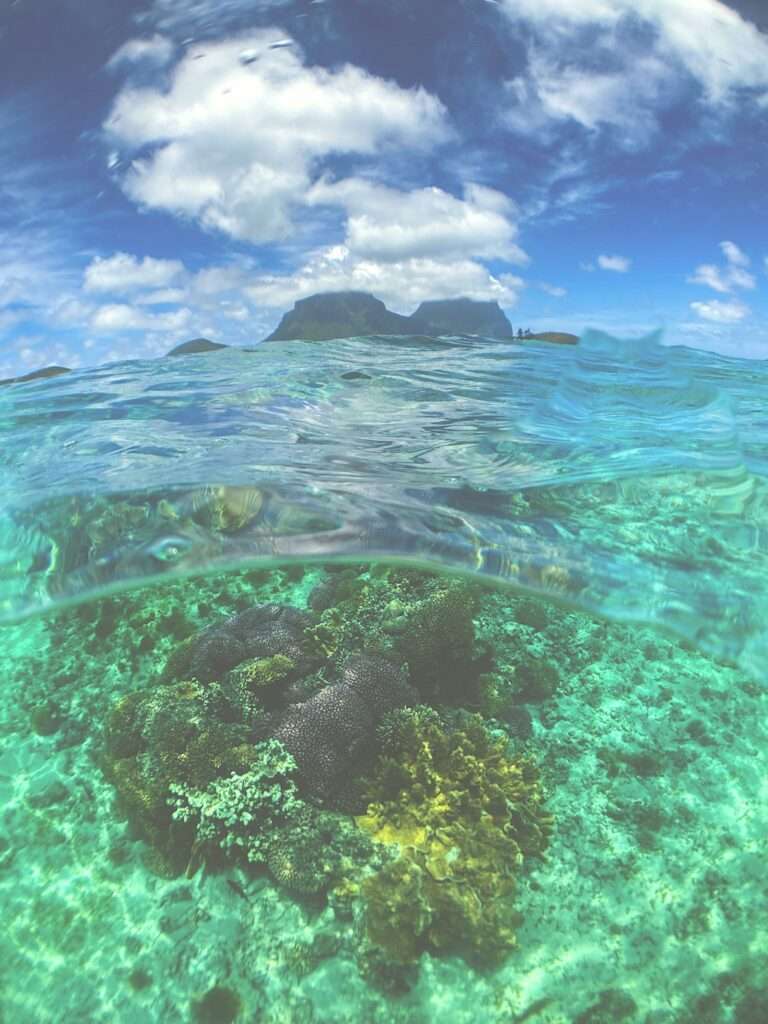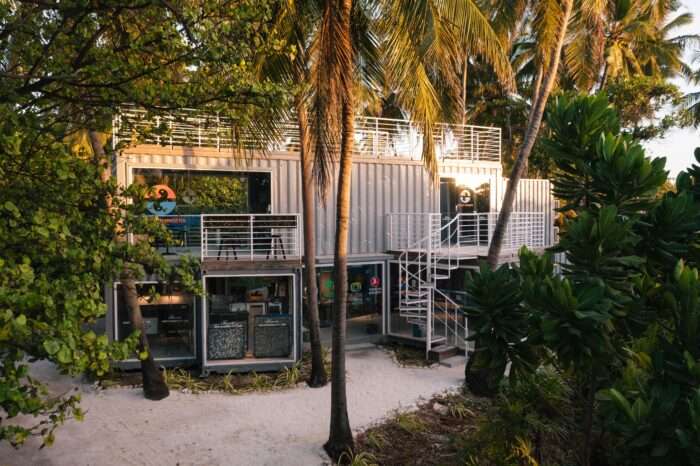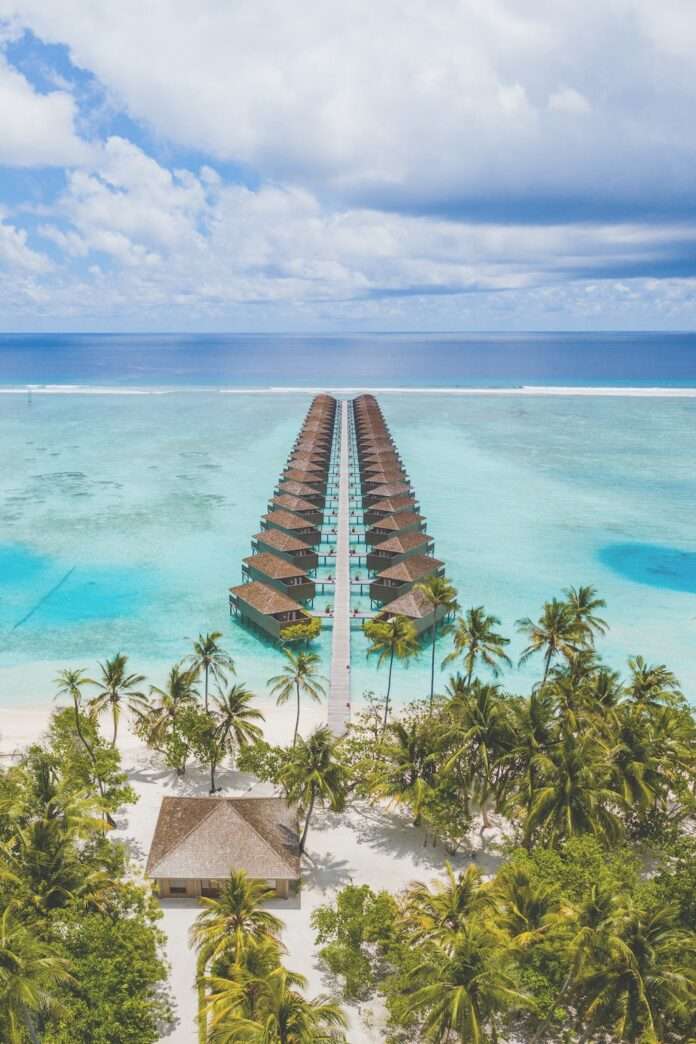The luxury resorts located on the islands of Maldives are more than just picturesque vacation destinations; they have become some of the most important spots in the world in the fight against climate change.
Like other tourist destinations sensitive to climate change, such as the Galápagos Islands and Monaco, the tiny island chain nation of the Maldives is accelerating climate action via adaptive measures to minimize the impacts.
Resorts like Fairmont Maldives are spearheading efforts with initiatives like the Sustainability Lab. While that sounds more like something you might find on a university campus, or a government-organized climate task force, perhaps, this lab is located on a remote, private island in Shaviyani atoll at one of the most luxurious vacation destinations in the world. The Fairmont Maldives, Sirru Fen Fushi, operates the first sustainability hub of its kind in the archipelago. The luxury resort is aiming to become the region’s leading plastic waste recycler. Part of the way it’s doing that is by turning plastic waste into tourist keepsakes like keychains, but with an underlying message of sustainability, education, and community.
“Community upliftment is part of Fairmont’s DNA, and the Sustainability Lab will eventually become a recycling centre in the atoll and beyond, creating a culture of sustainability and accountability in local communities,” the resort said in a statement.

While the Fairmont’s Sustainability Lab is becoming the recycling center for the entire atoll, it’s just one of the region’s private island resorts researching ways to promote sustainability and protect biodiversity — Hawksbill turtles nest here — as well as mitigate the looming threats of climate change.
For resorts, like the Fairmont, sustainability has become essential. Many employ marine biologists to help promote and protect biodiversity including reef restoration. While they may not all have Sustainability Labs like the Fairmont, there are significant measures in place.
Visit the nearby Soneva — a resort with two private islands — and you may find yourself at the UNESCO Biosphere Reserve. It’s at the Soneva Fushi in the Baa Atoll, offering a sample of the unique species of marine, fauna, and flora of Maldives. Soneva was the first Maldives resort to recycle its own plastic and the first to become climate neutral. It’s working toward a 100 percent waste-free goal.
The resort also invests in mangrove conservation — trees key in the fight against climate change — as well as seagrass restoration and reducing carbon emissions. Along with its sister resort, Soneva Jani, Soneva Fushi is working to restore coral reef systems, including creating a “coral hub” as part of a partnership with the Swiss environmental organization, Coralive, and the ecosystem restoration group, Ark2030.
Gili Lankanfushi, considered the Maldives’ original eco-resort, is a sustainable haven that desalinizes its own water. Villas are made from sustainable materials including teak, palm, and bamboo harvested locally during the island’s rehabilitation.
The resort created the Coral Lines Project, a research and restoration focus aimed at regenerating coral through low-tech, high-efficiency recovery techniques. Gili Lankanfushi involves interested guests in caring for coral fragments.

Guest interaction and education are also part of the focus at Siyam World resort. Its aim is to help children become environmental ambassadors — activities that encourage families to connect with nature, the resort hopes, will make them more inclined to protect it.
Kudadoo Maldives resort has an on-site marine biologist working to protect sea turtle populations. The resort is partners with the Manta Trust in their ongoing research of the archipelago’s manta ray populations. It’s the first resort in the Maldives to be entirely solar-powered — a move the government is aiming to make the standard for the region.
Another largely solar-powered resort, the Four Seasons Landaa Giraavaru Maldives resort, has a team of biologists at its Marine Discovery Centre who work with guests to rebuild coral reefs, rehabilitate turtles, and support the Maldivian Manta Ray Project. There’s another Marine Biology Centre at the Lux South Ari Atoll resort. It’s a Green Globe certified resort working to protect whale sharks native to the region. The marine research staff also works to remove ghost nets from the oceans — one of the biggest sources of ocean pollution.
Rebuilding reefs
The Maldives government is also working on projects to rebuild its coral reefs. Rebuilding reef is cost-effective, says Naseem. “It’s much cheaper than building a seawall. I think it costs something like $3,000 to grow a meter of sea wall where for the coral a meter of it is about $300, including monitoring and everything,” she said.
The island nation is also experimenting with MARS — the Modular Artificial Reef Structure — a coral-forming project that uses 3D printing bases that coral can attach to. By designing the MARS bases to the region’s coral needs, the theory is the permanent structure can grow up and around from there.

It’s also exploring building its own islands, further above sea level. Nearly thirty years ago, Maldives began building the island Hulhumale — the City of Hope. It’s six-and-a-half feet above sea level; more than double the height of Male, the nation’s capital. The constructed island could serve as a relocation site as sea levels rise. There are also plans for a floating city, set to start construction later this year.
Back at the Fairmont, efforts continue in order to make the resort, the premier destination for conservation and climate education. The hotel offers guests opportunities to become “turtle rangers” to help protect the regional Hawksbills threatened by plastic pollution and climate change. The hotel’s marine biologists educate guests on the turtle conservation work underway; it’s part of the Olive Ridley Project, a Maldives-based NGO focused on turtle research.
Its Sustainability Lab has partnered with local schools in Shaviyani Atoll, hosting workshops on recycling, marine biodiversity, ocean conservation, and the impacts of climate change.
“With the launch of the Sustainability Lab, we aspire to be as close to zero waste as we can, using current and future technology improvements to allow us to find better ways to reduce, reuse, recycle and upcycle our waste, whilst educating the next generation of eco-conscious Maldivians and travelers about the importance of recycling, sustainable living and ocean conservation,” Andrew Steele, general manager of Fairmont Maldives, told Lavish Life.

It brings local children to the Sustainability Lab where they learn about its wider goals of becoming the premier sustainability hub for the archipelago. They see firsthand how the plastic waste is turned into bespoke keepsakes for guests, but also furniture, and school supplies.
“To be able to launch this project with our Fairmont Award Scheme for schools and change local pupils’ relationship with waste, means we’re really going to be able to make a difference in our atoll,” says Steele. “It’s not about greenwashing, it’s more about how we’re going to change mindsets, so we can ultimately create the next generation of eco-warriors.”
Related on Ethos:


